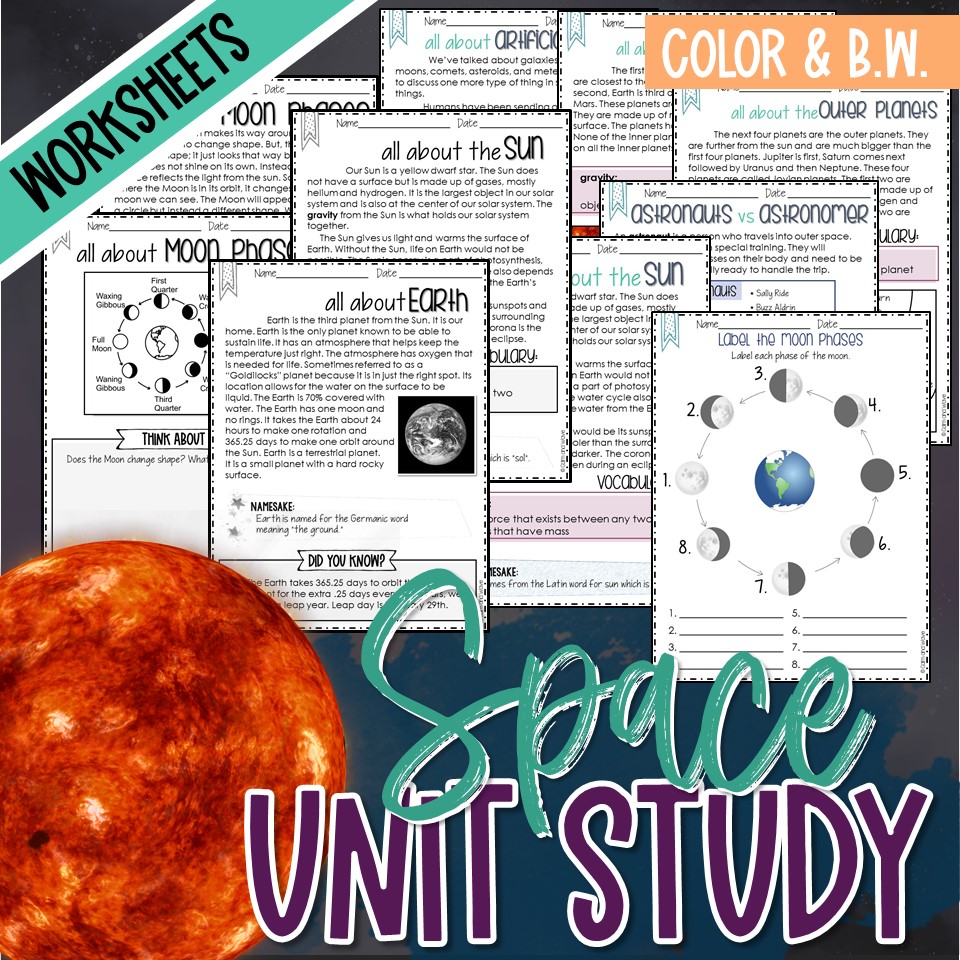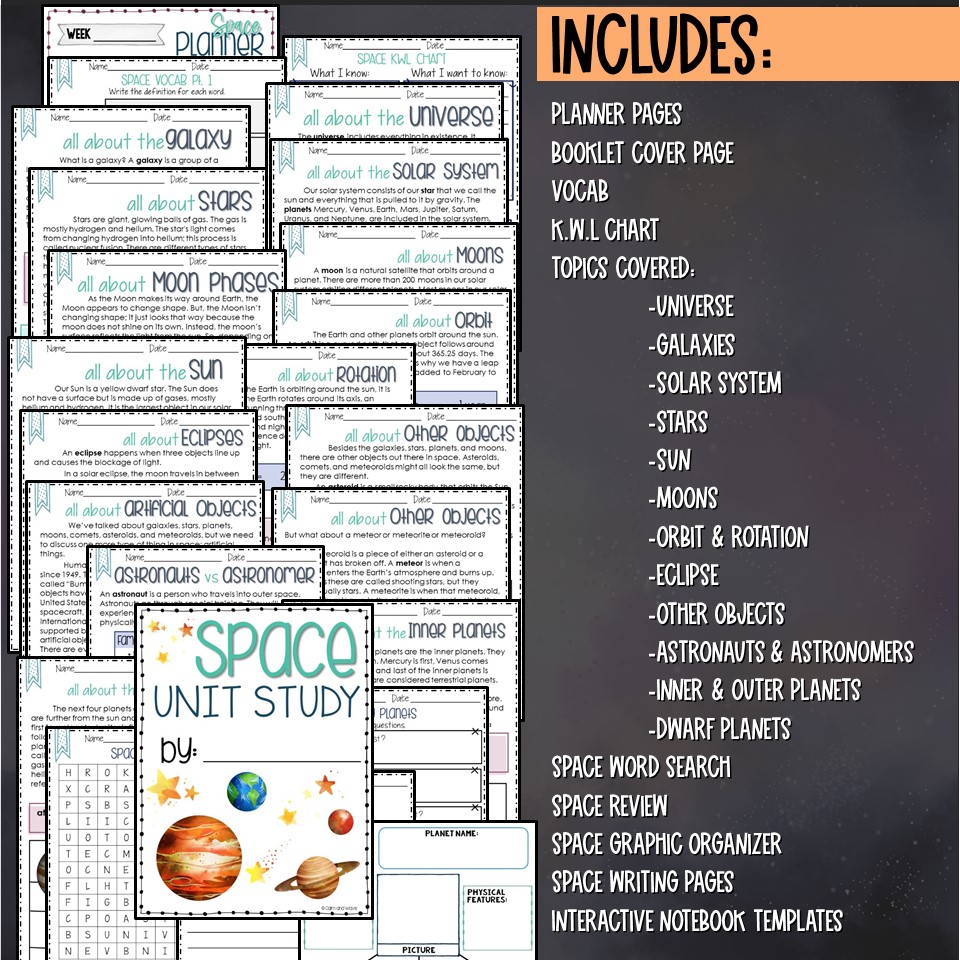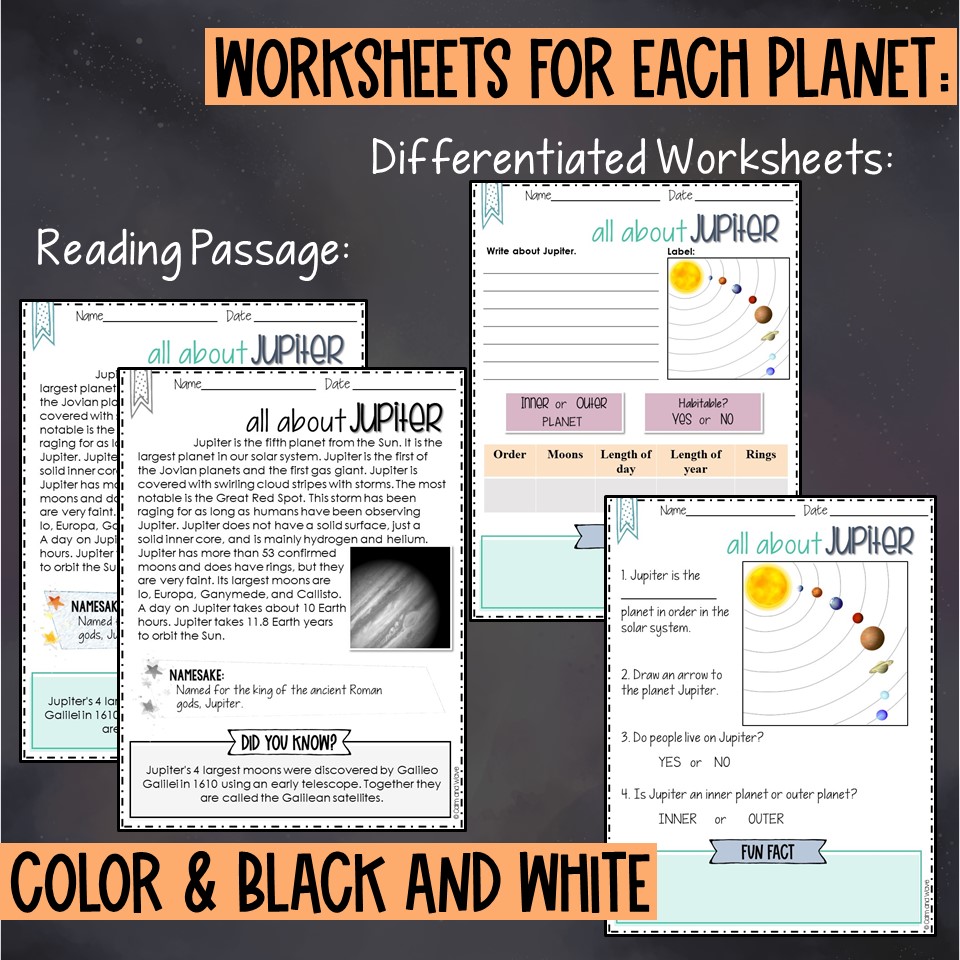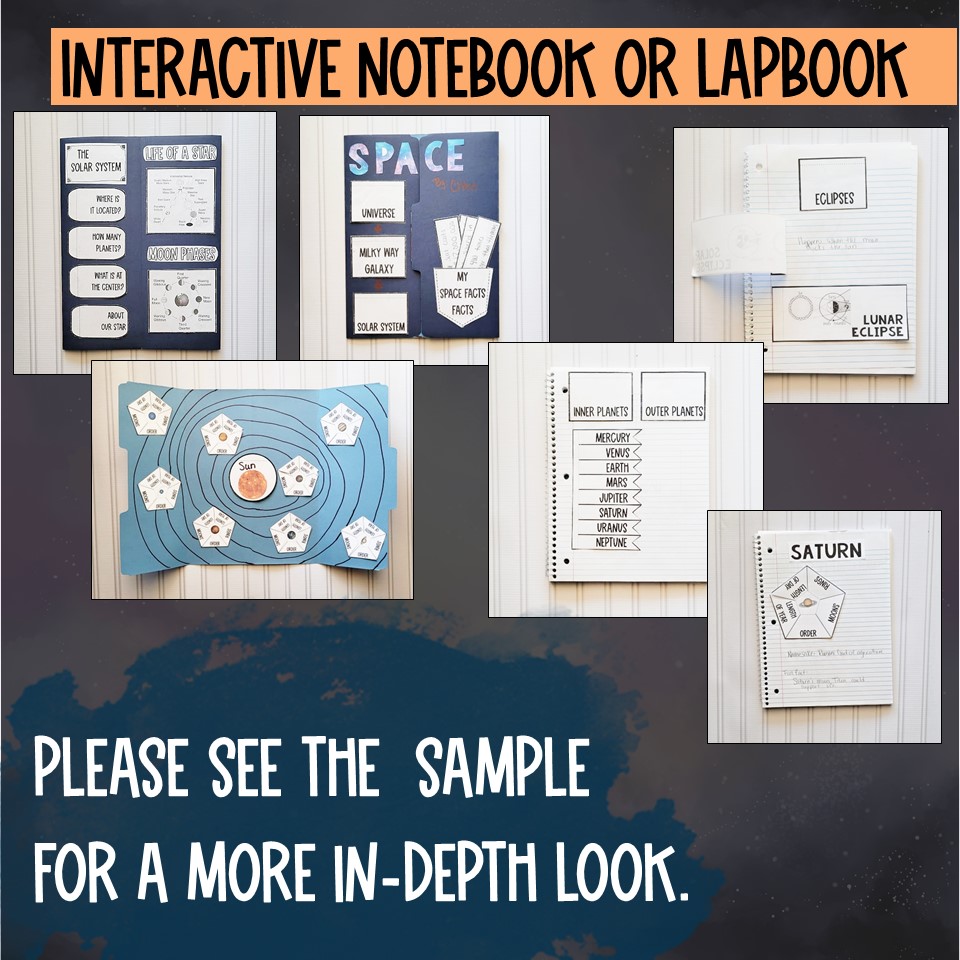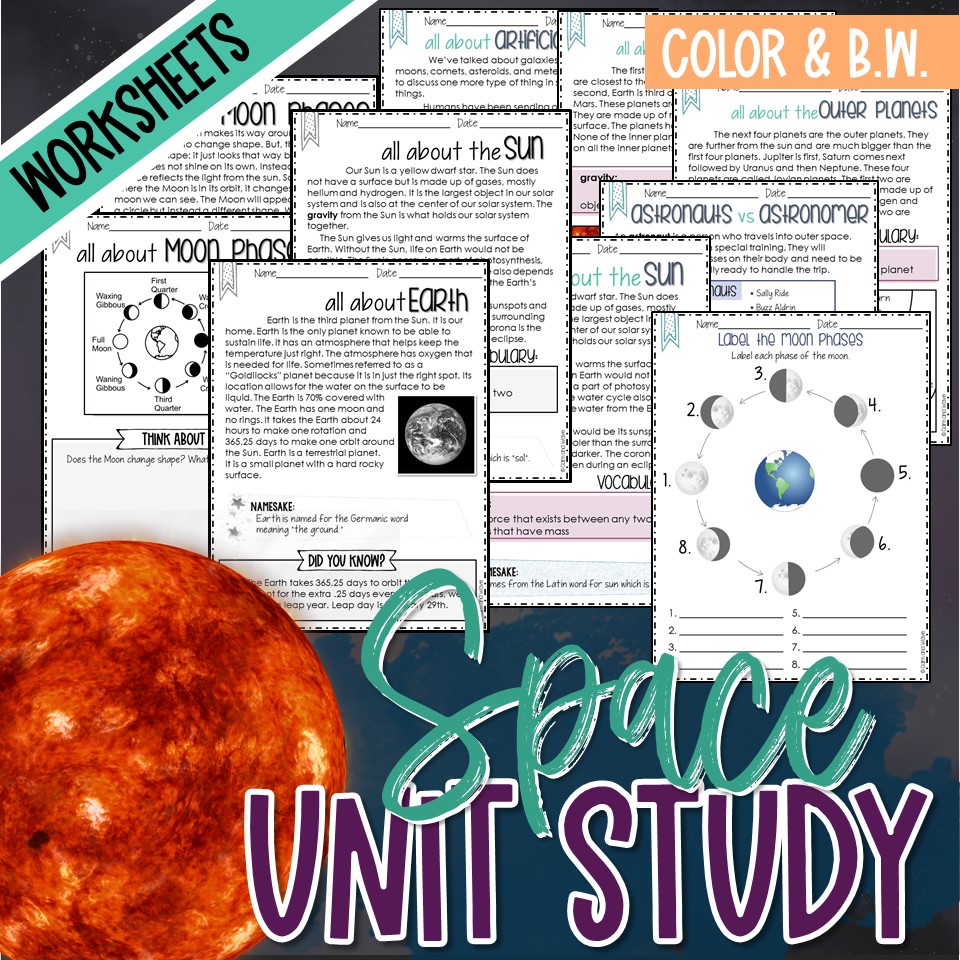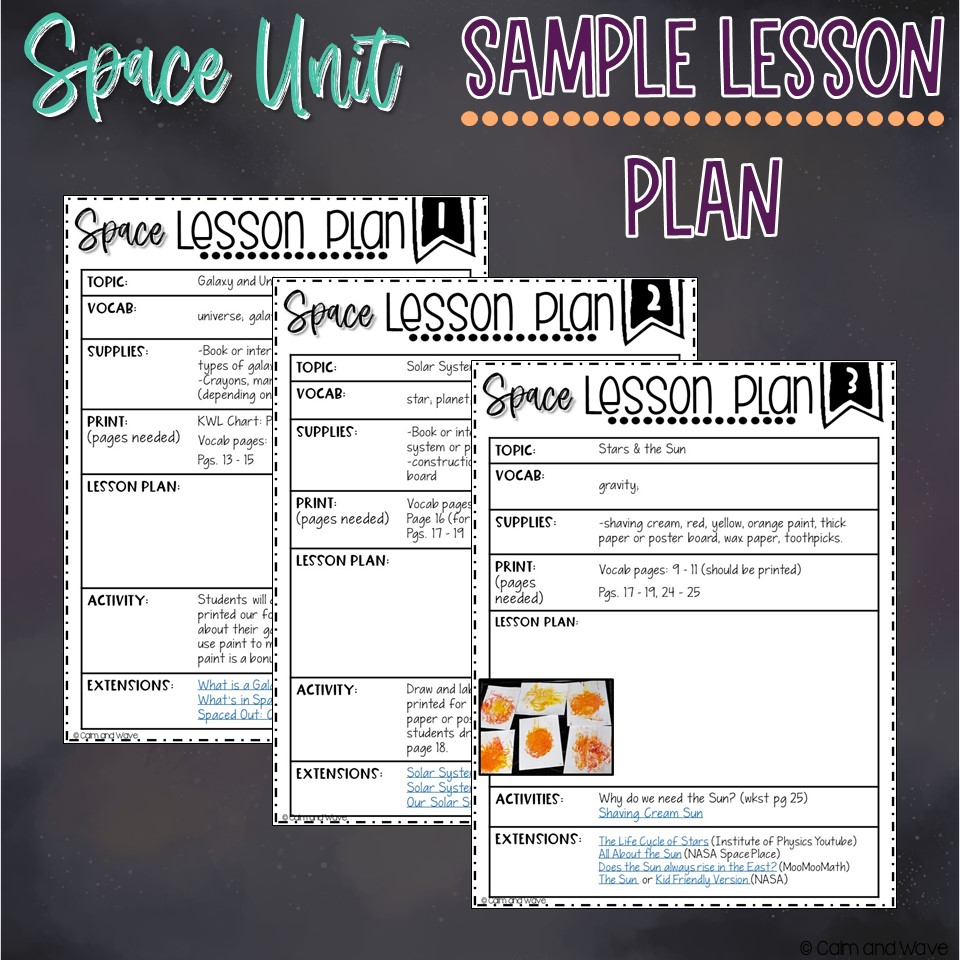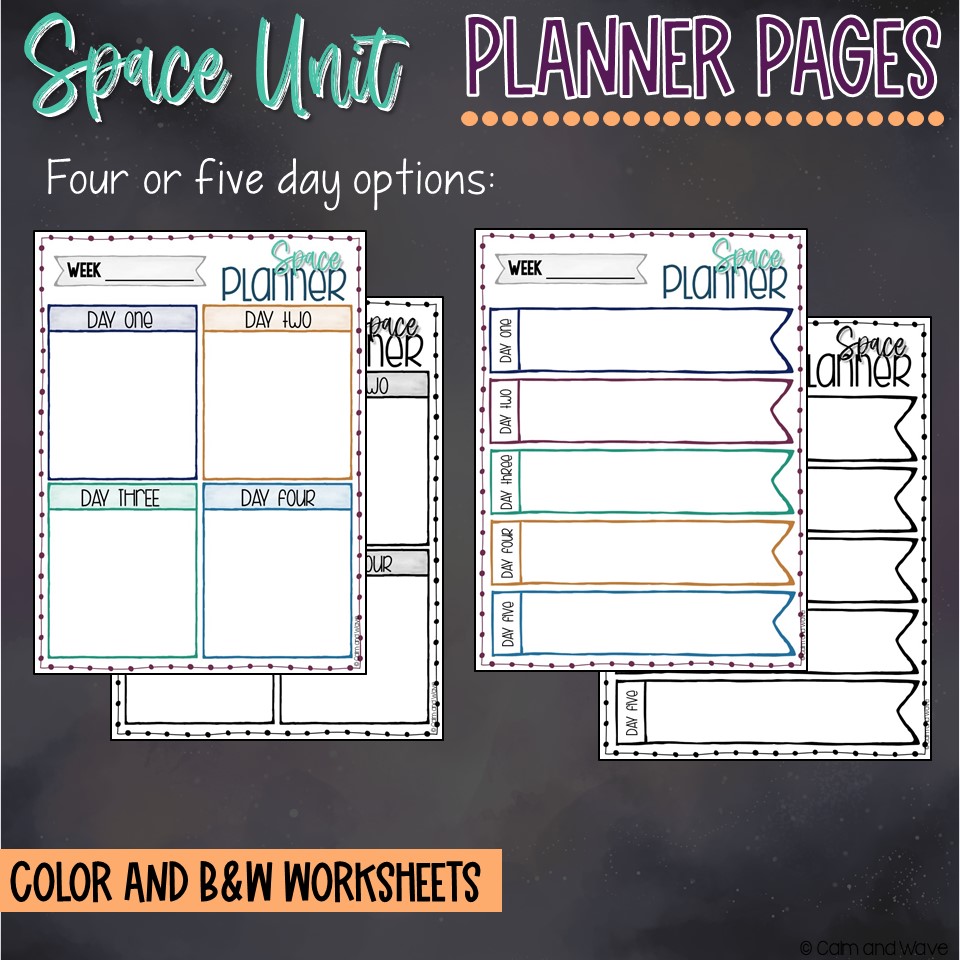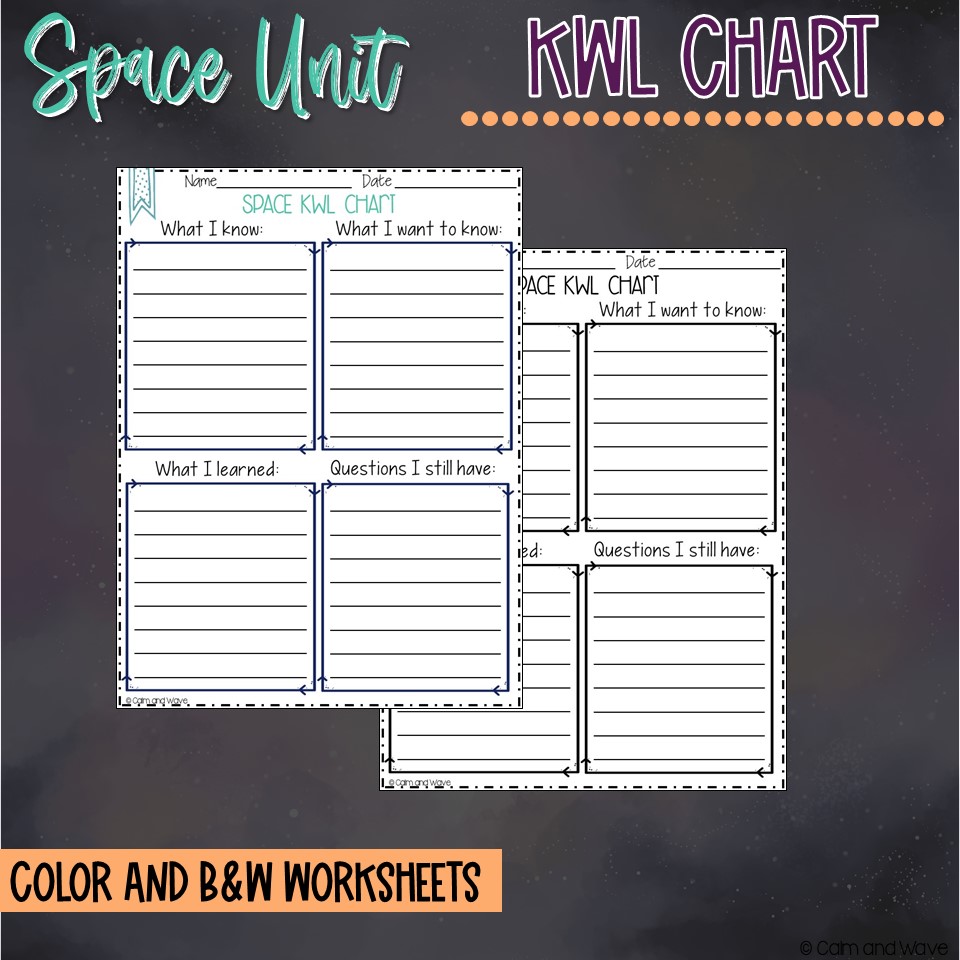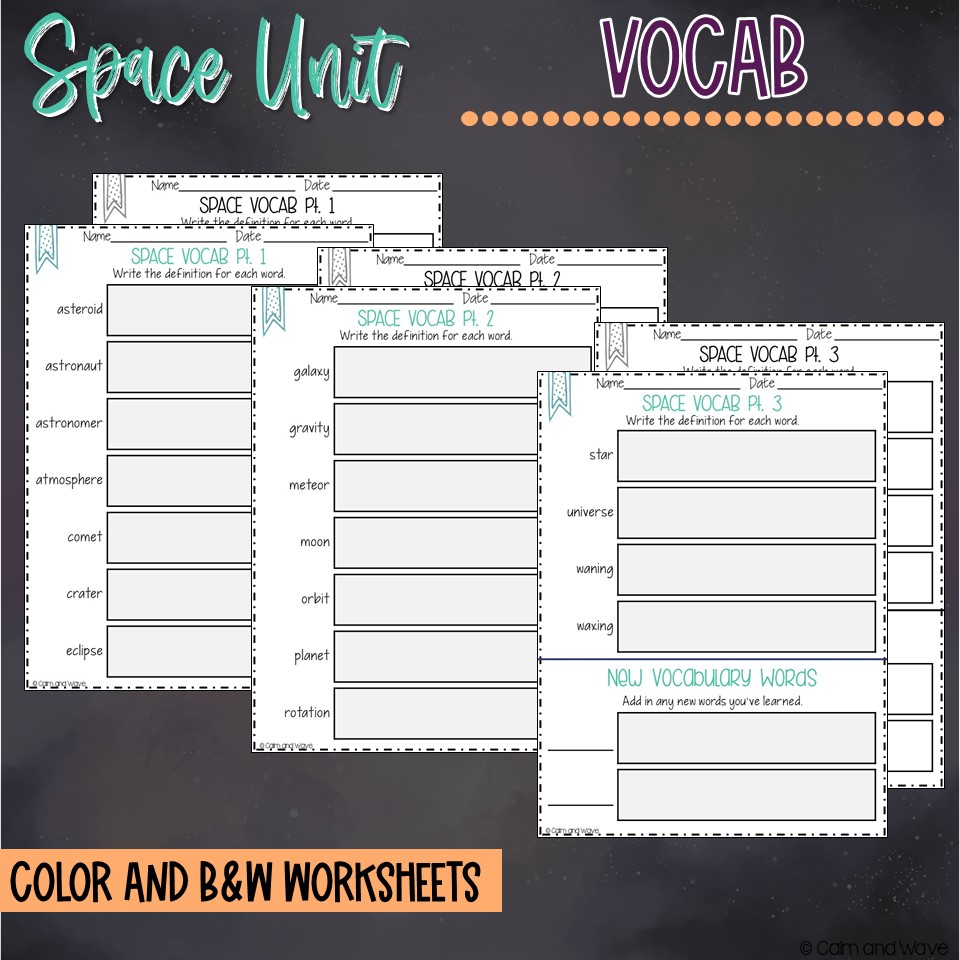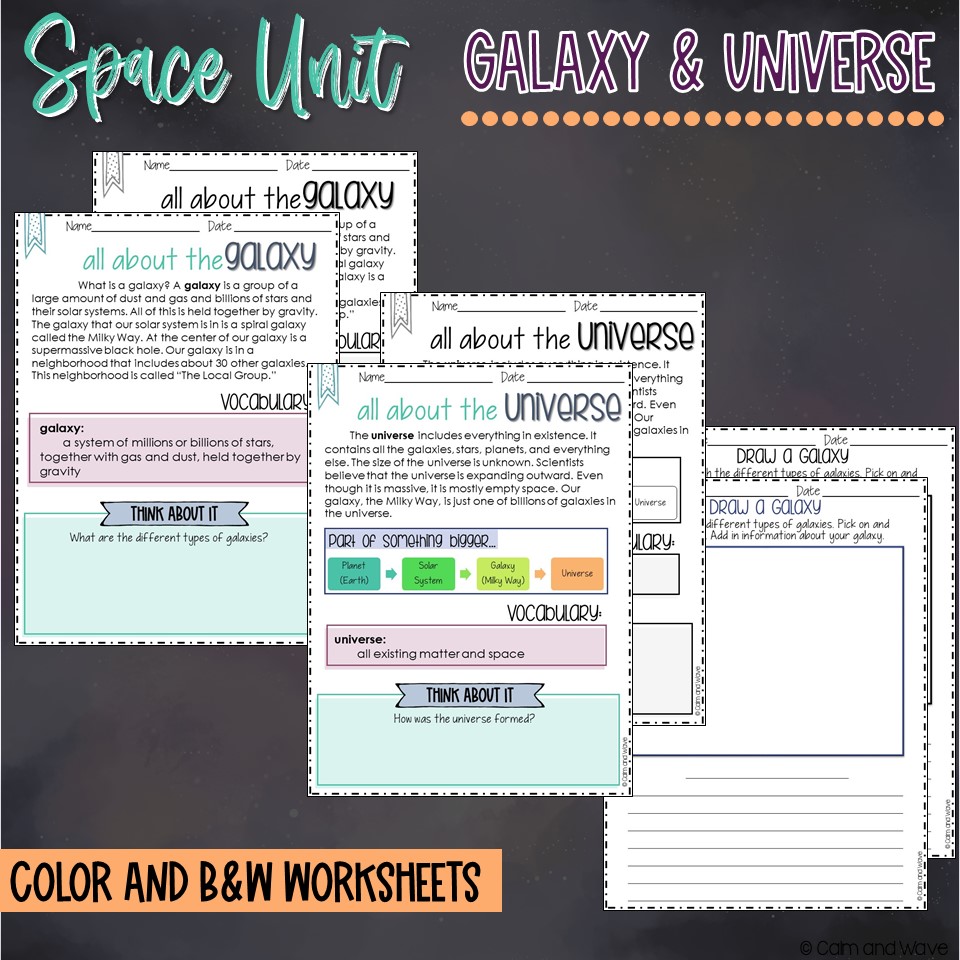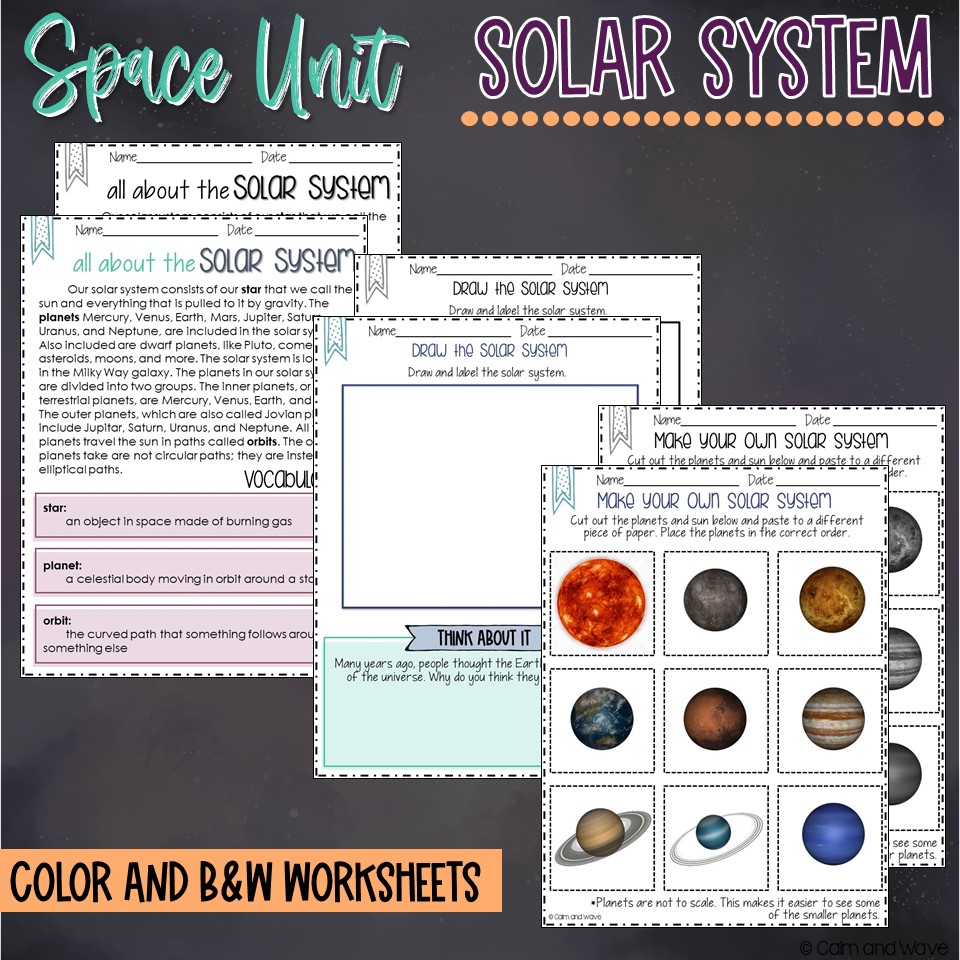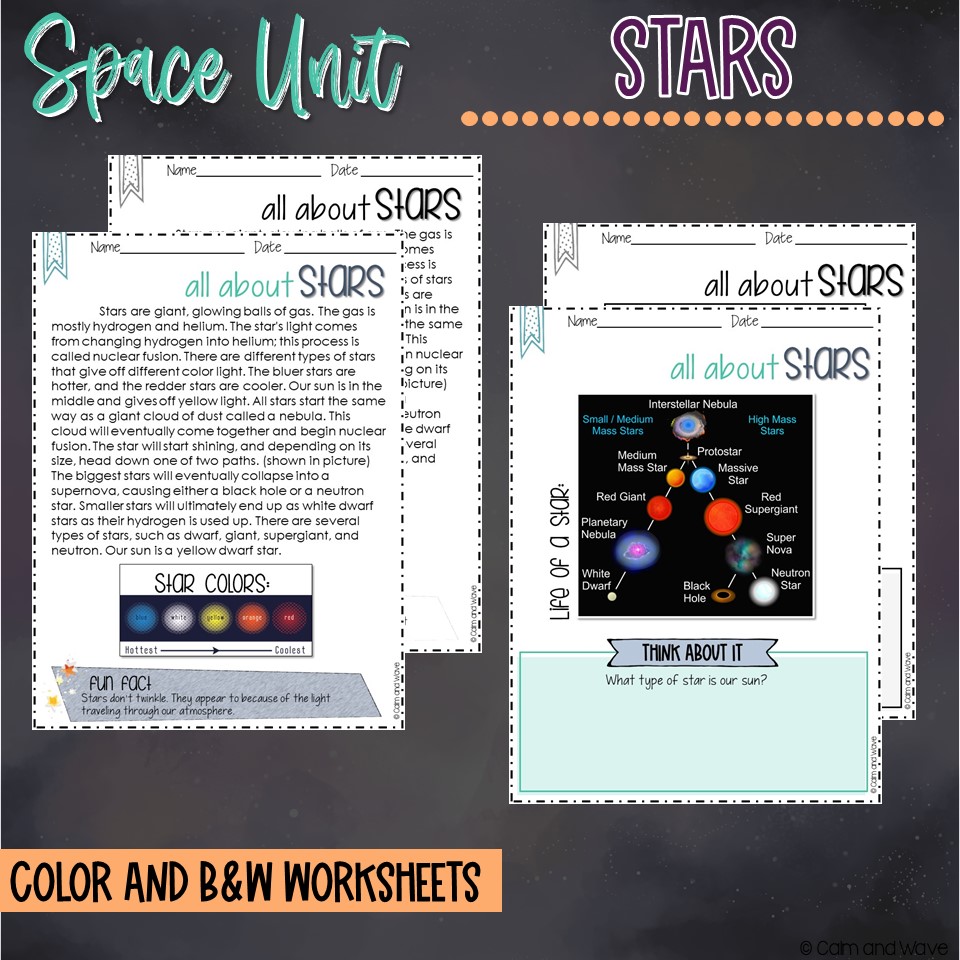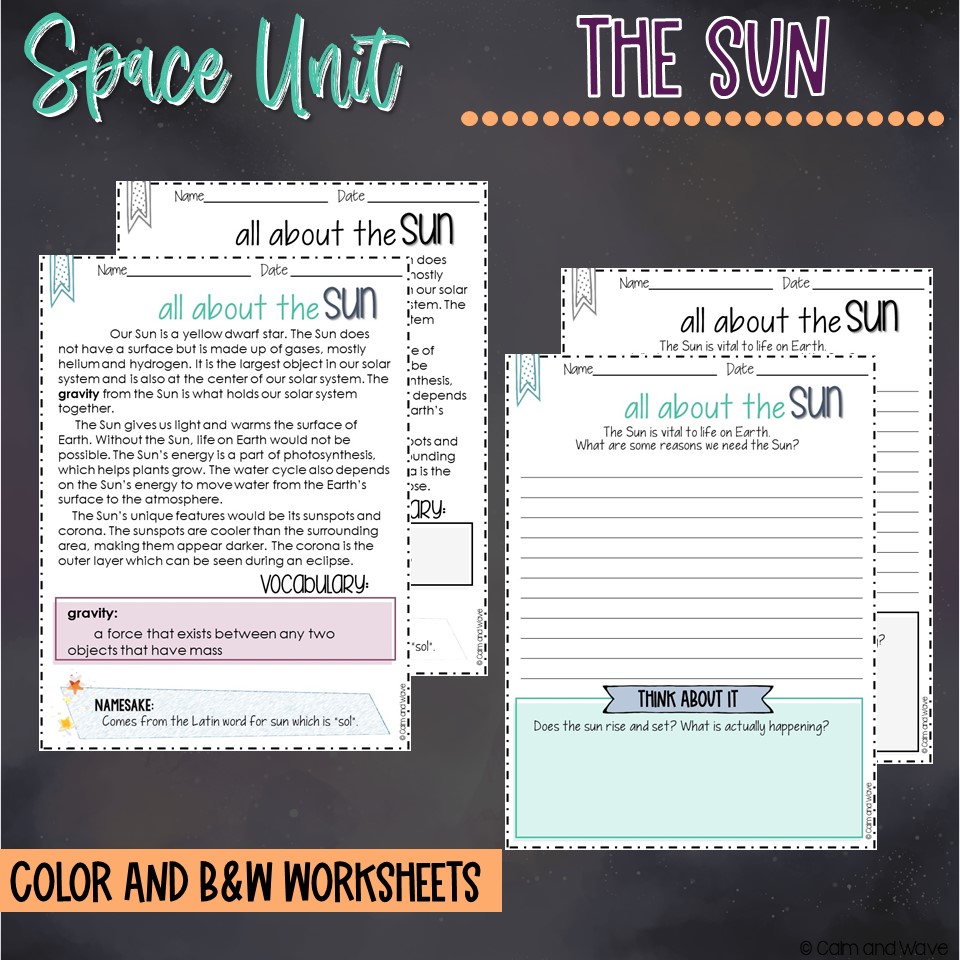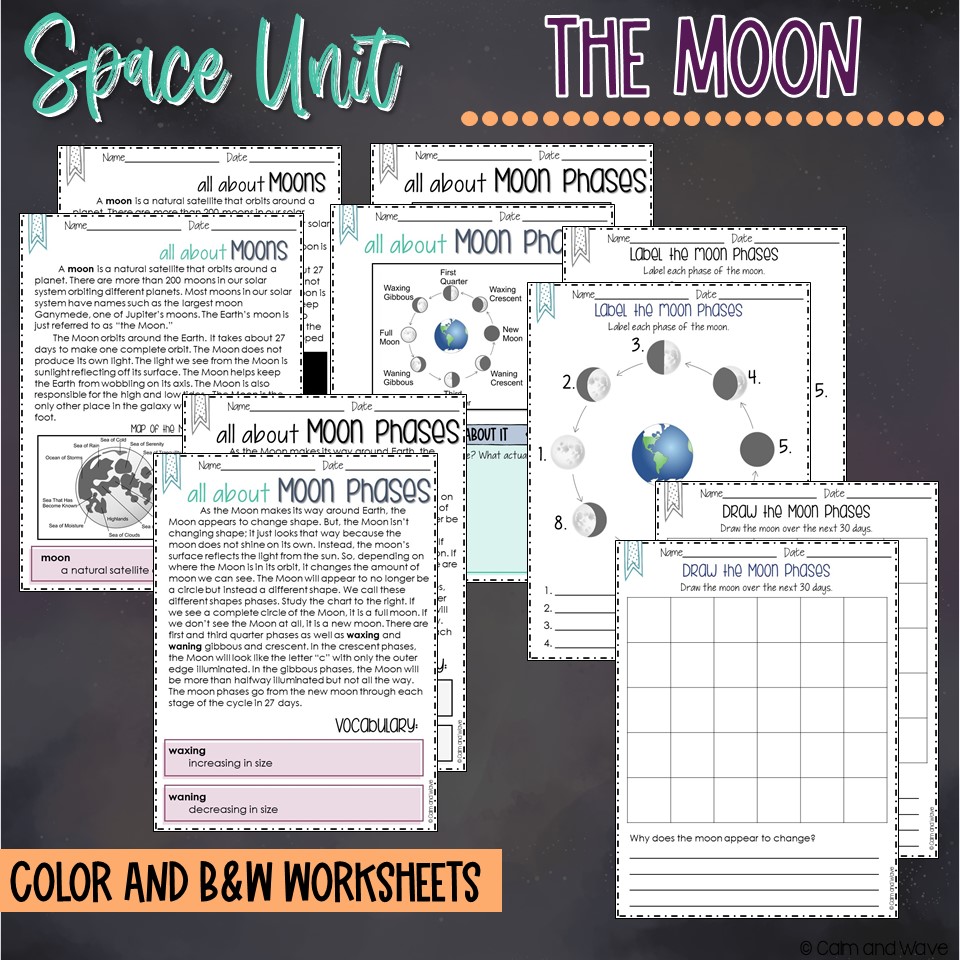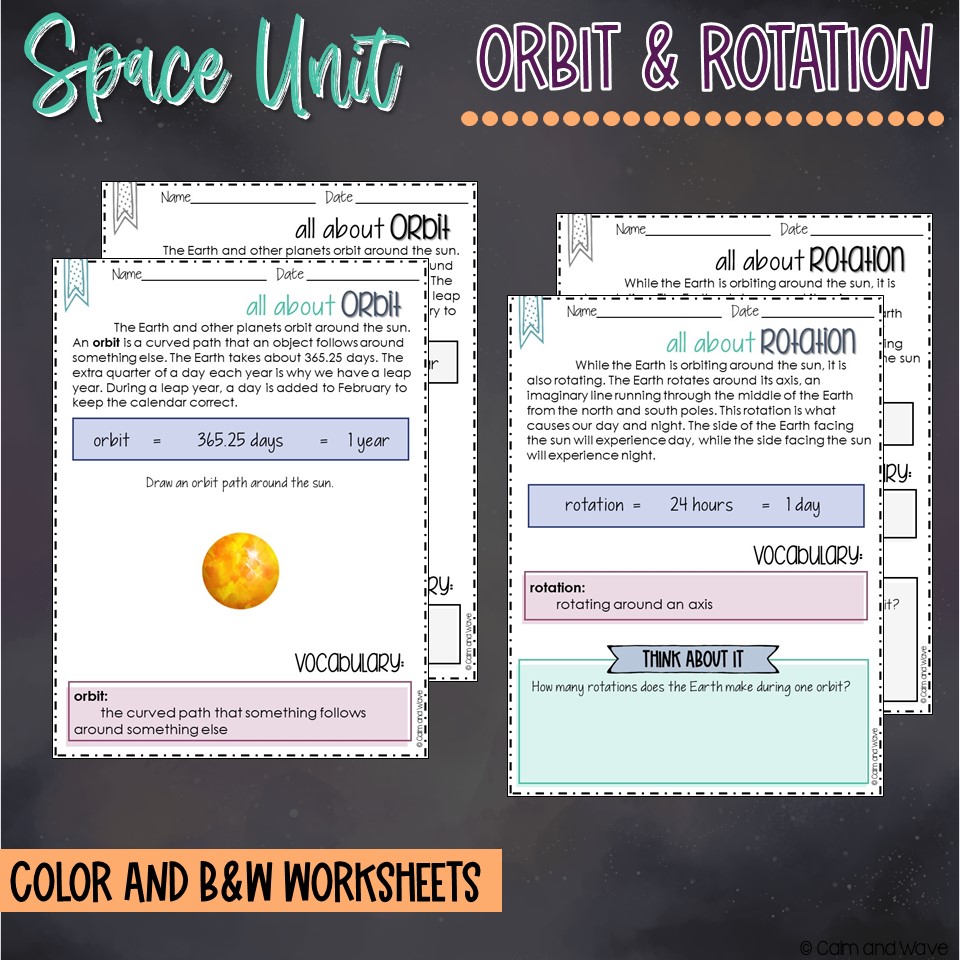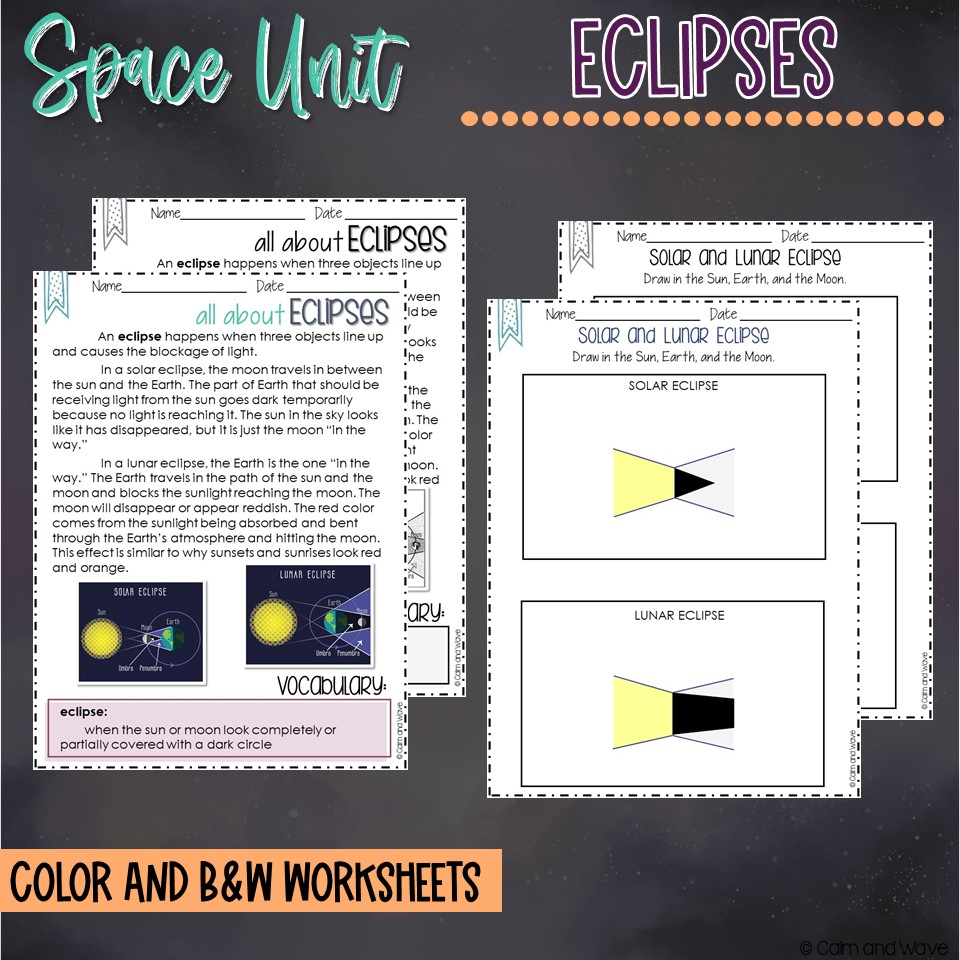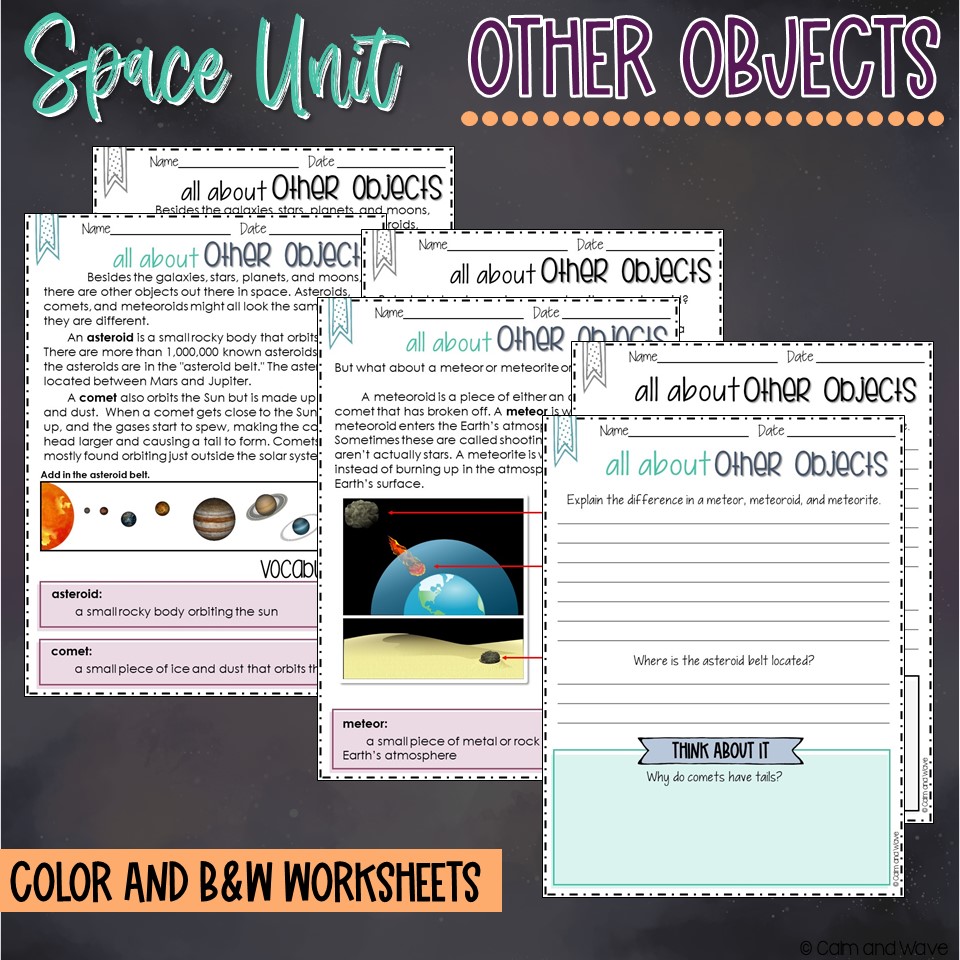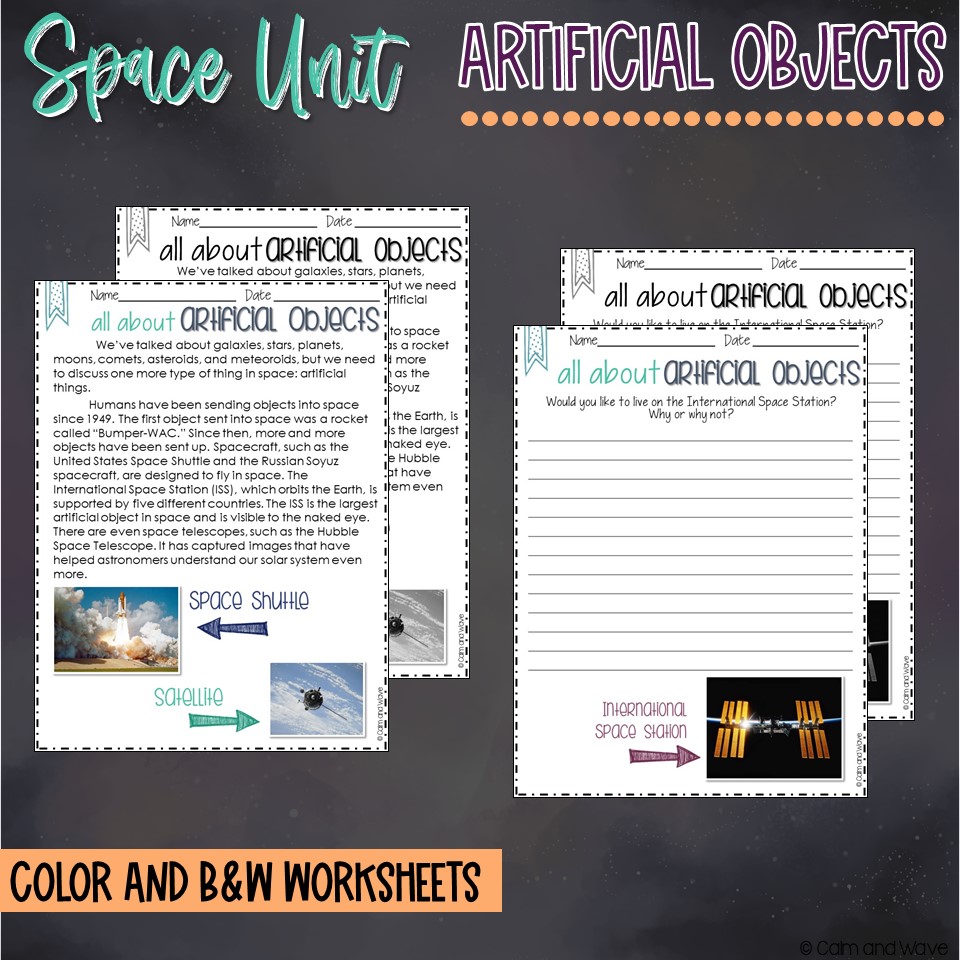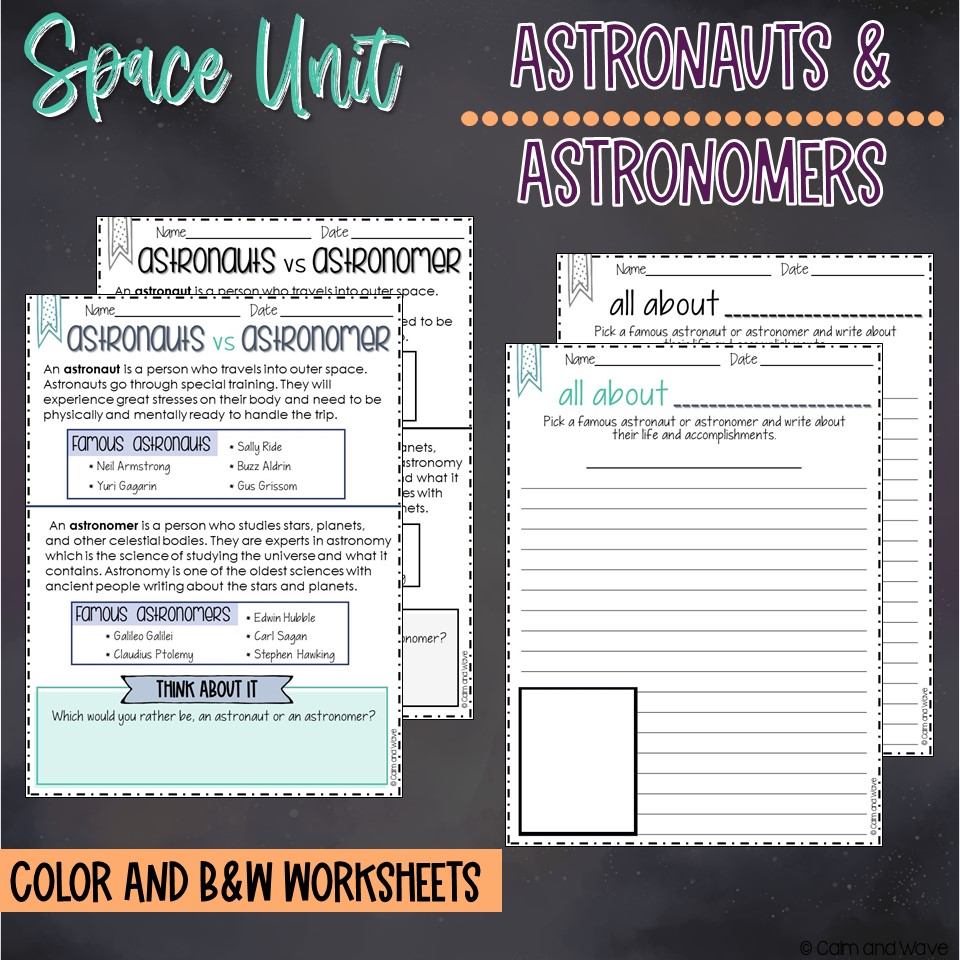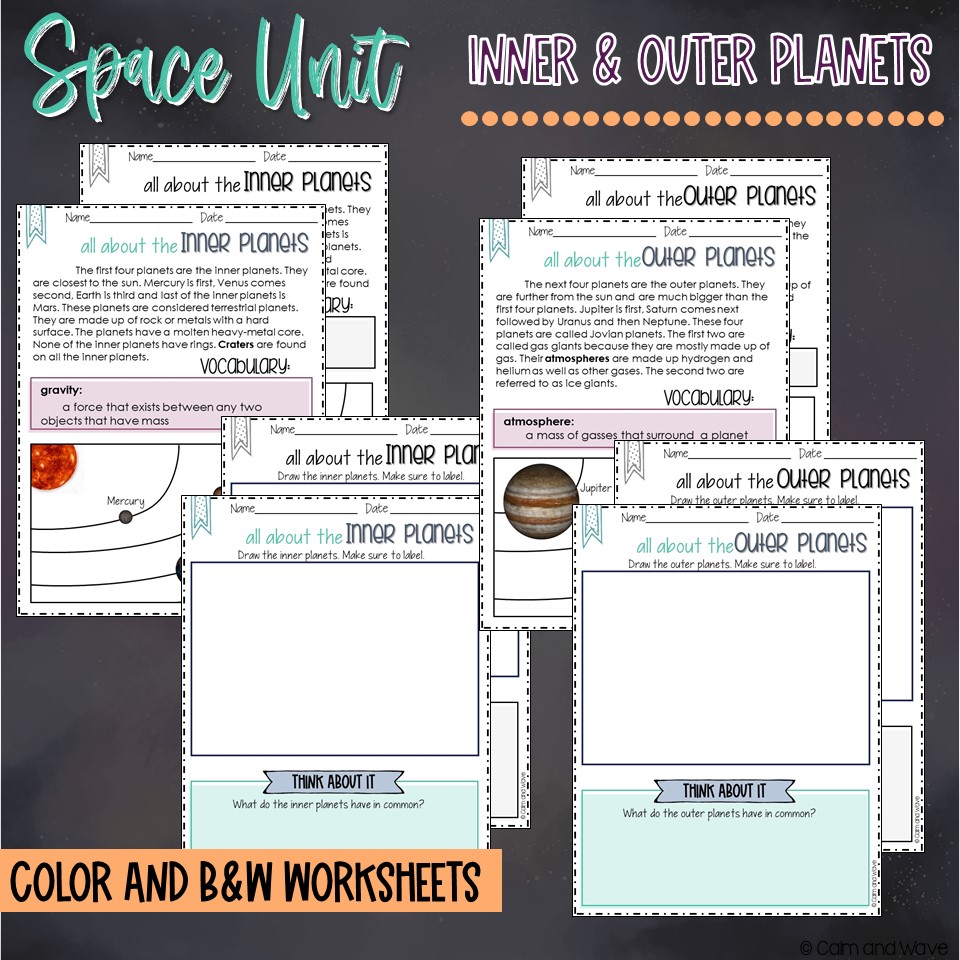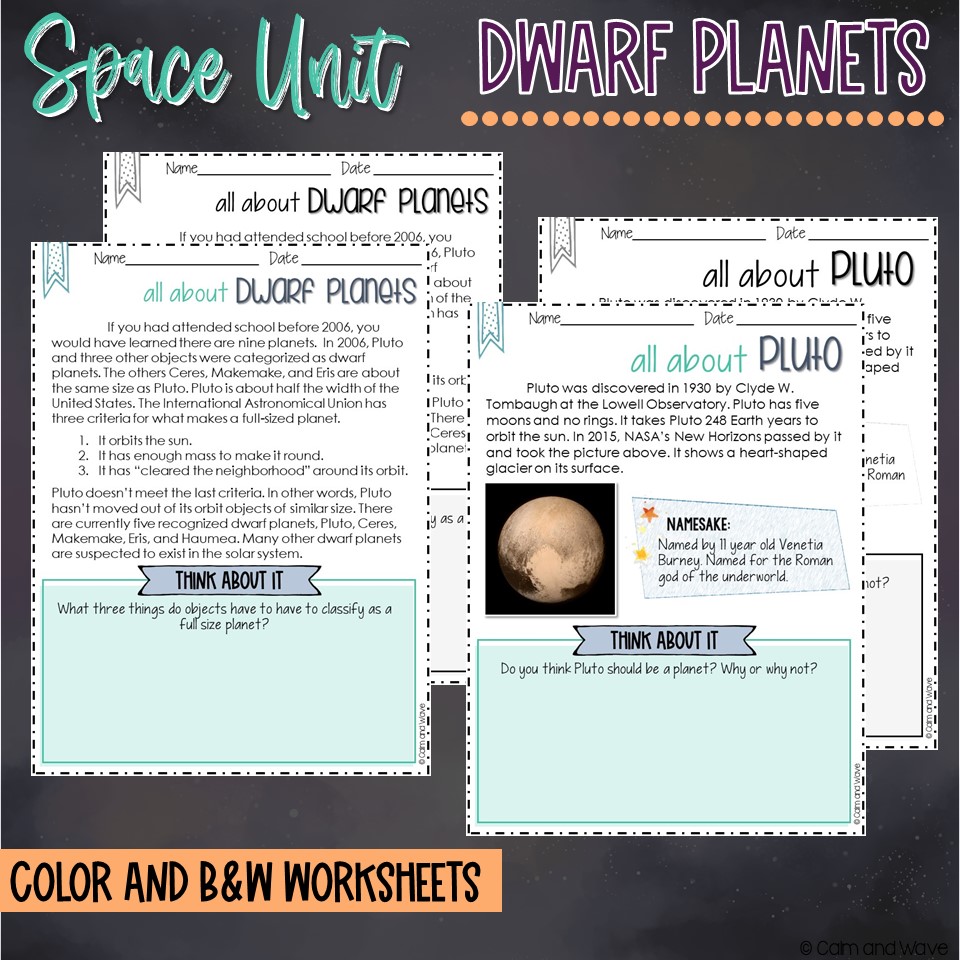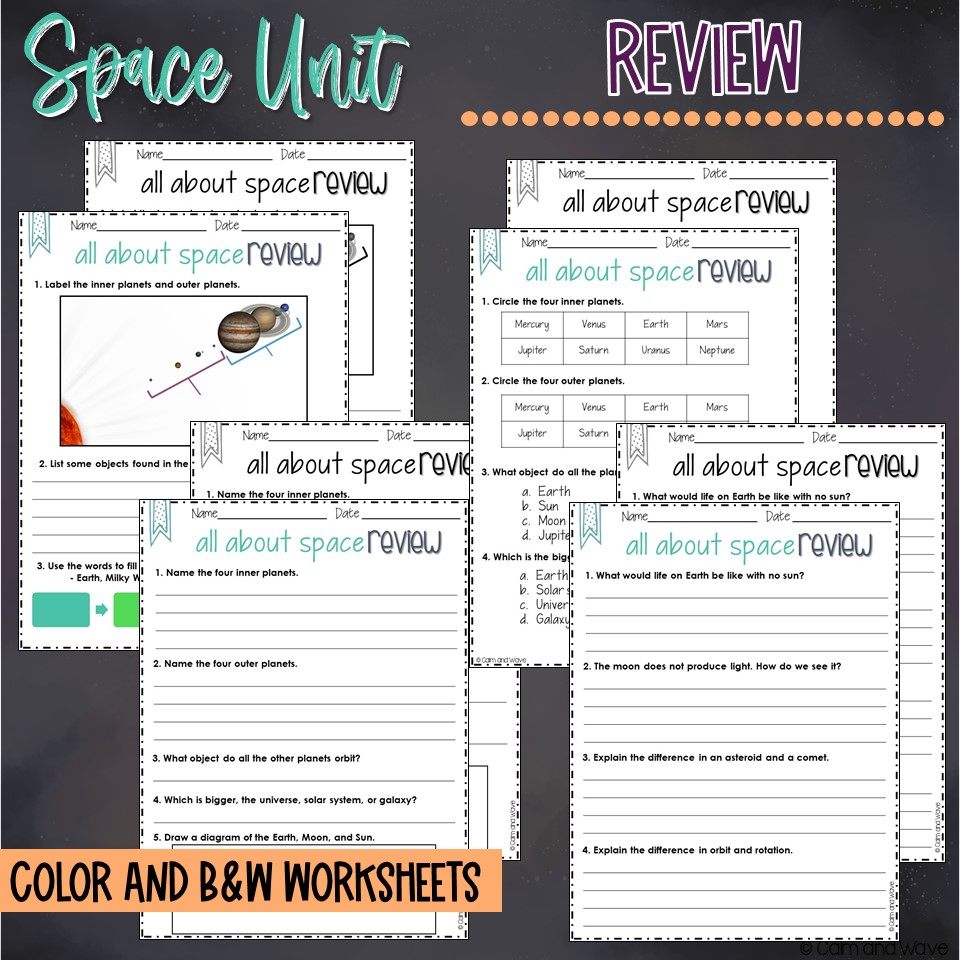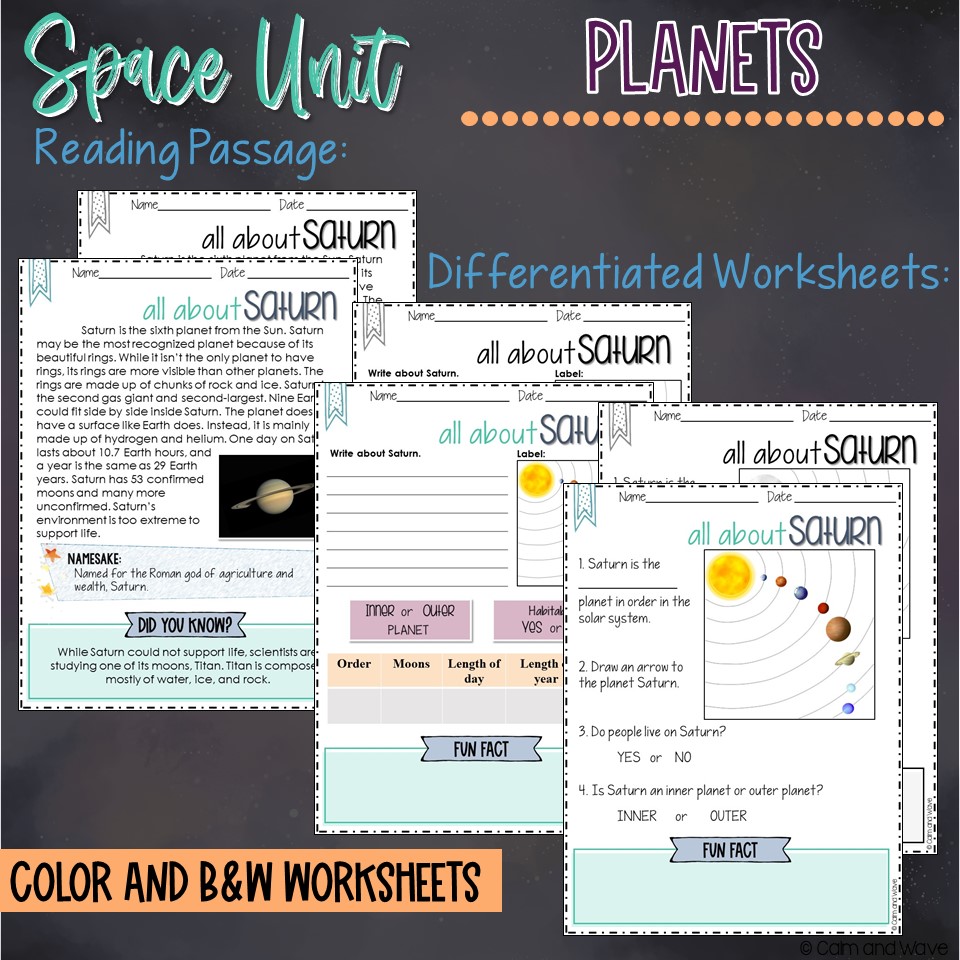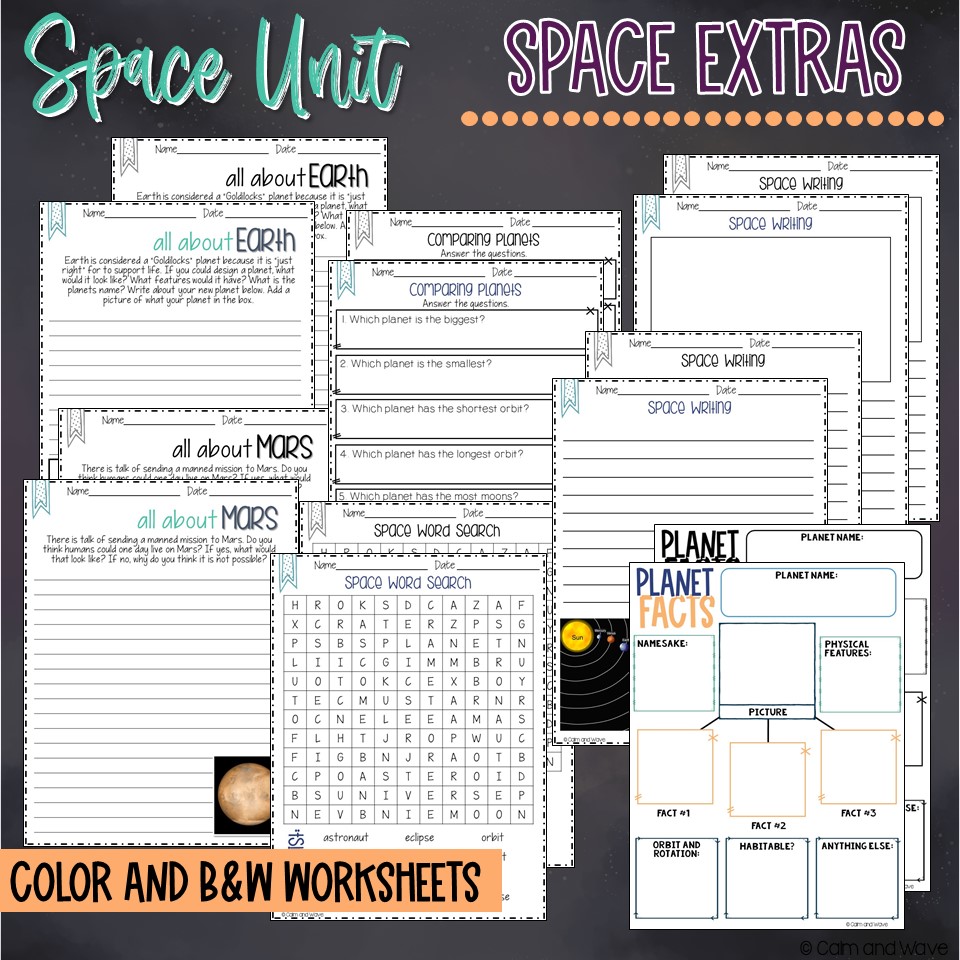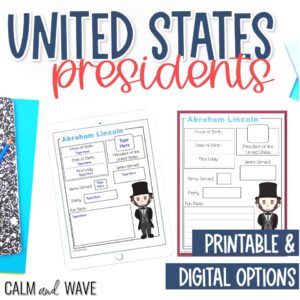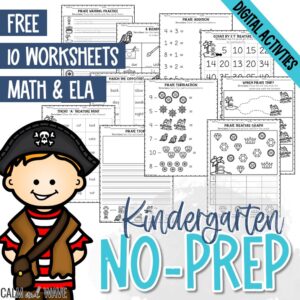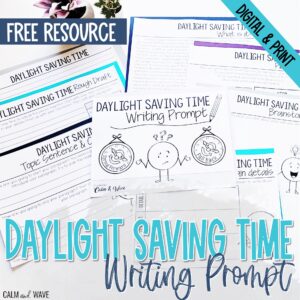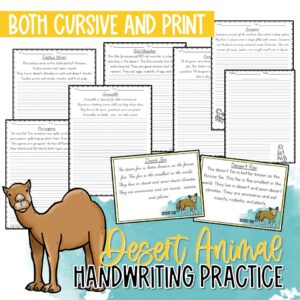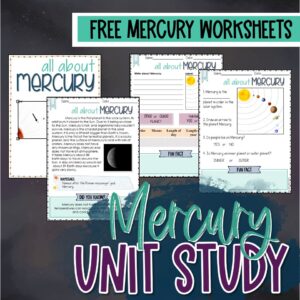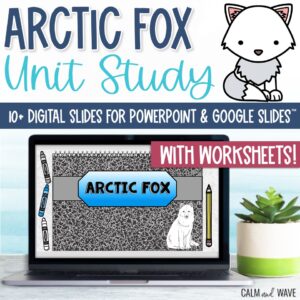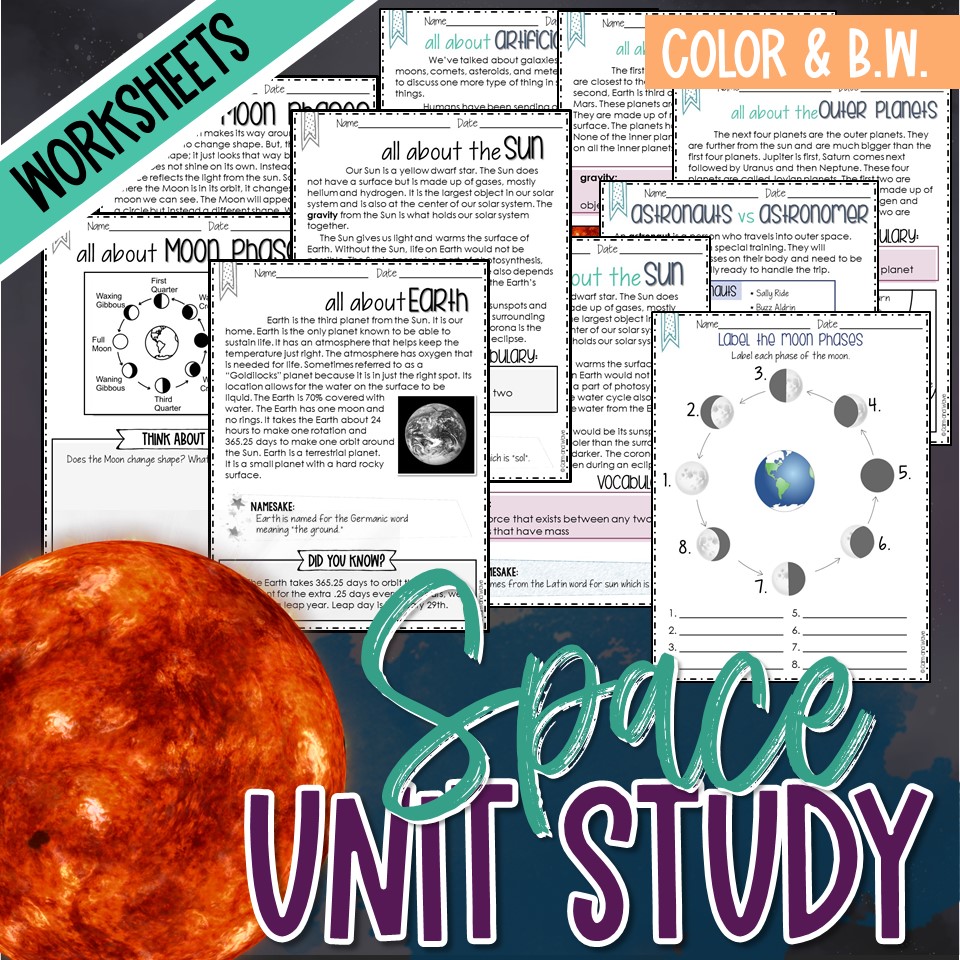
This post may contain affiliate links. This means I may earn some money should you choose to sign up for a program or make a purchase using my link. I only recommend companies or items that I love and think you will too!
Homeschool Space Unit Study with Interactive Notebook
Space is maybe my favorite topic to cover in homeschool. I created these space unit study worksheets with an interactive notebook and lapbook component to make learning about Space even more fun for kids. The worksheets include reading passages with vocabulary words and open-ended questions. The questions are designed to help students elaborate on what they have learned. This space unit study can be used for multiple grades, making it perfect for a homeschool setting.
Quick Look at What's Included:
This homeschool space unit study covers most of the topics associated with space. The worksheets for the space unit study are available in both color and black & white. Included for most topics is a reading passage with vocabulary. Open-ended questions help the students expand on what they have learned. This engaging space unit includes interactive notebook or lapbook pieces, planner worksheets, KWL chart, vocab worksheets, and much more.
BONUS: Included in the download is a sample lesson plan. The plans include extensions and extra activities. The space unit lesson plan includes room for you to plan your lesson.
Topics covered:
- Universe
- Galaxy
- Solar System
- Stars
- Sun
- Moons
- Orbit & Rotation
- Eclipses
- Other Objects
- Artificial Objects
- Astronaut & Astronomer
- Inner Planets
- Outer Planets
- Dwarf Planets
- Individual Planets
ALSO INCLUDED:
- Planner Pages (4 or 5 day)
- KWL chart
- Space Vocabulary
- Differentiated Review/Assessment Worksheets
- Comparing Planets Worksheet
- Space Word Search
- Space themed writing paper
- Planet Facts Graphic Organizer
- and more!
In Depth Look at Homeschool Space Unit Study
Flip through the pictures for an in depth look at the included worksheets.
PURCHASE HERE
or
Suggested Links & Activities for Homeschool Space Unit Study
Galaxy & Universe:
What is a Galaxy? (NASA Space Place)
What’s in Space? (NASA Space Place)
Spaced Out: Crash Course Kids #25.1 (YouTube)
Activity: Students will draw a galaxy. Page 15 can be printed our for the student to draw and write about their galaxy. Another option would be to use paint to make the galaxy. Glow in the Dark paint is a bonus!
Solar System:
Solar System 101 (Nat Geo YouTube)
Solar System (Dr. Binocs Show YouTube)
Our Solar System (NASA)
Activity: Draw and label the solar system. Page 19 can be printed for students to cut out and paste to paper or poster board. You could also have the students draw their own instead of printing using page 18.
Stars & the Sun
The Life Cycle of Stars (Institute of Physics YouTube)
All About the Sun (NASA Space Place)
Does the Sun always rise in the East? (MooMooMath)
The Sun or Kid Friendly Version (NASA)
Activity: Why do we need the Sun? (wkst pg. 25) & Shaving Cream Sun
The Moon
Moon Phases Demonstration (NSTA YouTube)
Earth’s Moon (NASA)
Earth’s Moon (“kid friendly” NASA)
Activity: Moon Phases (wkst pg. 29), Moon Phases (wkst pg. 30), Chart the Moon (wkst pg. 31), & Cookie Moon Phases
Orbit and Rotation
Earth’s Rotation & Revolution (Crash Course Kids)
Why Are Planetary Orbits Elliptical? (Science ABC)
Activity: Create a human representation of orbit vs rotation. You will need 3 people. One person is the Sun, one person the Earth, and one person the Moon. Have them “rotate” and “orbit” one another. This activity really helped the differences to “click.”
Eclipses
Eclipses (NASA Space Place)
Solar Eclipses 101 (Nat Geo YouTube)
Lunar Eclipse 101 (Nat Geo YouTube)
*Note: The USA, will be able to see a solar eclipse on April 8, 2024.
Activity: Use the flashlight to simulate the Sun. Use one ball for the Earth and one for the Moon. Simulate a solar and lunar eclipse. Draw an eclipse (wkst pg. 37)
Other Objects
What is the Asteroid Belt and the Kuiper Belt? (MooMooMath)
Comets (Dr. Binocs Show)
What Is a Comet? (NASA Space Place)
Asteroid, Comets, and Meteors (NASA)
Activity: Watch a meteor shower. Check out this list here & All About Other Objects (wkst pg. 41)
Artificial Objects
International Space Station Tour (CBS)
Take a Tour of the Space Station (SciShow Kids)
NASA Live Stream – (Space Videos) (comments aren’t monitored)
Activity: Would you like to live on the ISS? (writing activity) (wkst pg. 44)
Astronauts and Astronomers
What Do Astronauts Do? (SciShow Kids)
Astronomer – Career Video (Yes! Our Kids Can)
Space Place Live (can read transcripts)
Activity: Biography writing activity (wkst pg. 47)
Inner and Outer Planets
The Rocky Planets (SciShow Kids)
The Gas Giants (SciShow Kids)
Activity: Have the students make a Venn diagram comparing/contrasting the inner vs. outer planets. Draw the inner planets (wkst pg. 50) and Draw the outer planets (wkst pg. 53).
Dwarf Planets
All About Pluto (NASA Space Place)
Why is Pluto Not a Planet? (Peekaboo Kidz)
Pluto (NASA)
Activity: An option would be to write a letter in support of Pluto being a full size planet or why it should stay a dwarf planet.
Mercury
Mercury 101 (Nat Geo)
Venus
Venus 101 (Nat Geo)
Earth
Earth 101 (Nat Geo)
Mars
Mars 101 (Nat Geo)
Jupiter
Jupiter 101 (Nat Geo)
Saturn
Saturn 101 (Nat Geo)
Uranus
Uranus 101 (Nat Geo)
Neptune
Neptune 101 (Nat Geo)
PURCHASE HERE
or


